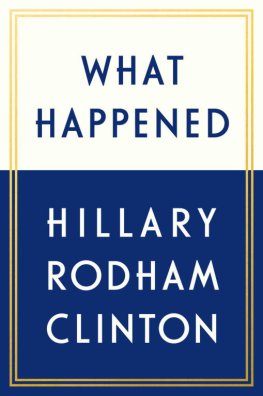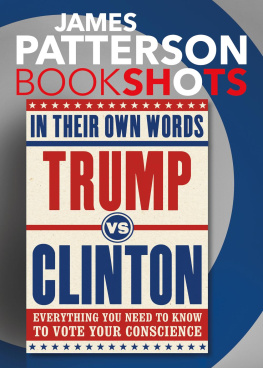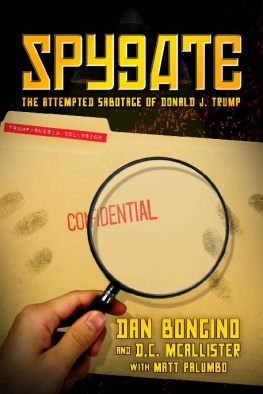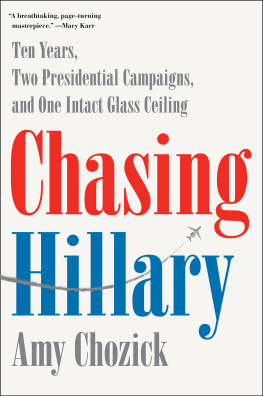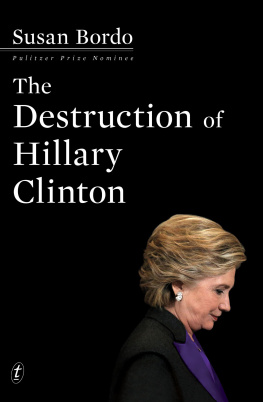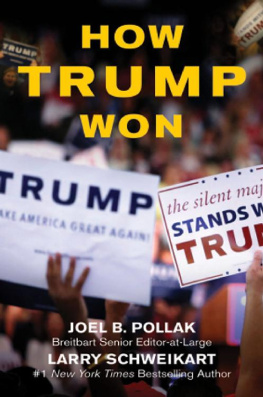
Gender in the 2016 US Presidential Election
Using a discourse analysis, Dustin Harp investigates media during the 2016 US presidential election to explore how traditional (patriarchal) and feminist ideas about gender played out during the campaign. The book illustrates how these two ideologies competed for space and struggled for discursive authority.
A broad range of media texts are examined, and gender moments, where gender became a dominant part of the political conversation, are identified. These include the nasty woman and grab em by the pussy comments of Donald Trump and the woman card played by, and against, Hillary Clinton. Furthermore, Harp reveals how binary notions of gender and stereotypical ideas of how men and women should behave, look, and sound structured the ways Donald Trump and Hillary Clinton were talked about in the media. As a counterpoint, the research also shows the ways feminist ideologies worked against the sexism and misogyny and became mainstream in media discourse during the campaign.
Students and researchers of Gender Studies will find that the gender moments in Gender in the 2016 US Presidential Election tell a broader story about women, gender expectations, and power. They offer important and timely insights about misogyny and sexual harassment in contemporary US culture and feminist resistance in a mediated public sphere.
Dustin Harp is Director of the Womens and Gender Studies Program and Associate Professor in the Department of Communication at the University of Texas, Arlington, USA. Her research explores the intersections of women and media, with an interest in women and politics. She is the co-editor of Feminist Approaches to Media Theory and Research (2018) and author of Desperately Seeking Women Readers (2007).
Gender in the 2016 US Presidential Election
Trump, Clinton, and Media Discourse
Dustin Harp
First published 2019
by Routledge
2 Park Square, Milton Park, Abingdon, Oxon OX14 4RN
and by Routledge
52 Vanderbilt Avenue, New York, NY 10017
Routledge is an imprint of the Taylor & Francis Group, an informa business
2019 Dustin Harp
The right of Dustin Harp to be identified as author of this work has been asserted by her in accordance with sections 77 and 78 of the Copyright, Designs and Patents Act 1988.
All rights reserved. No part of this book may be reprinted or reproduced or utilised in any form or by any electronic, mechanical, or other means, now known or hereafter invented, including photocopying and recording, or in any information storage or retrieval system, without permission in writing from the publishers.
Trademark notice: Product or corporate names may be trademarks or registered trademarks, and are used only for identification and explanation without intent to infringe.
British Library Cataloguing-in-Publication Data
A catalogue record for this book is available from the British Library
Library of Congress Cataloging-in-Publication Data
A catalog record for this book has been requested
ISBN: 978-1-138-05221-5 (hbk)
ISBN: 978-1-138-05223-9 (pbk)
ISBN: 978-1-315-16791-6 (ebk)
Typeset in Bembo
by Apex CoVantage, LLC
This book is dedicated to Mark, Austin, and Cameron.
Contents
I signed the contract for this book before the end of the 2016 presidential election. The proposal I had written and the book I expected to write, I believed, would be about the campaign leading up to the election of the United States first woman President. I had become convinced (as many others had) that Hillary Clinton would be elected President. That, however, was not to be the case. After Donald Trump won the presidency, I needed time. Time to digest the direction of the country and the fact that someone so sexist and disrespectful of women would be our new president. Like many feminists, I felt distraught and defeated. It took me time before I could revisit this project and immerse myself in more than a year of media content that led to the election of Donald Trump. To be completely honest, this project has proved difficult at times for no other reason than I find it difficult to revisit the words of sexism, racism, and xenophobia the hate and the fear that Donald Trump and his supporters expressed during the campaign. Throughout the writing of the book, too, it was difficult to concentrate only on what had happened during the campaign, as so much worthy of my attention has occurred since Trump became president. For example, the Womens March and the #MeToo movement. However, the book is about the campaign so I do not visit issues that occurred after the election.
There were other challenges to working on this project along the way, as there always are in life. The writing of this book occurred as I was going up for tenure and also taking a new position. I am now an Associate Professor in the Department of Communication and the Director of the Womens and Gender Studies Program at my university. While researching and writing this book, I was also working with my two favorite research partners on an edited volume titled Feminist Approaches to Media Theory and Research (2018). All of this occurred while I also juggled family life. This included a major shift in my world as the writing of this book coincided with my oldest sons senior year of high school and as he moved away to start college. Im thankful to still have one son at home but have become all too aware of how precious this time in my life is and how important it is to achieve a good work/life balance.
I made every effort to be thorough and fair in my data collection and analysis. Having resided within the walls of academia and research, I know there is always room for criticism; always suggestions for what should have been done differently. Further, gender and feminism are complex and contested concepts. Research related to these areas takes care. My hope is that readers see the care taken in producing trustworthy analysis and that the book will inspire conversation, research, and activist projects. And, ultimately, I hope it will enlighten peoples views about gender, power, and politics and the problematic nature of traditional gender stereotypes (whether they are about men or women).
I want to acknowledge the feminist media scholars who laid the foundation for this book and the many people who have supported my academic work, and who have mentored and worked with me. My husband, the brilliant and loved Mark Tremayne, who encouraged me to write this book and engaged with me in numerous conversations about it throughout the long process. He helped in other ways, too, and I am always grateful for his presence in my life. I appreciate my two sons, Austin and Cameron, who were patient and supportive as I worked to balance my role as mom with the demands of academia and book writing. I am forever grateful for these two in my life as well.
Numerous friends and colleagues who assisted me during the writing process in various ways deserve thanks, too. Lesley Ramsey helped me talk out the structure of the book very early in the process. I am also appreciative of my friend and walking partner Cathy Kingeter who, whether she knew it or not, served as a cheerleader throughout this process. She listened and always encouraged me on our daily walks, while sharing her dogs with me. Multiple times during the writing process, I took to Facebook to ask my friends if they could find and send me materials when my university library did not have them. The hive-mind is amazing. Cindy Royal, a Professor at Texas State University and one of my former graduate students from UT Austin, once sent me material within minutes of my posted request. Peter J. Gloviczki, an Assistant Professor at Coker College, once answered my request while evacuated due to a hurricane. Jaime Loke, an Assistant Professor at Texas Christian University, and Ingrid Bachmann, a Professor at Pontificia Universidad Catolica de Chile, were (and always are) on hand to help, as well. There were others, Im sure. Please forgive me if I have neglected to mention you by name. I also want to thank Trudi Beckman, who works with me as the administrative assistant in the Womens and Gender Studies Program at UTA. Trudi enthusiastically offered to read each of my chapters and offered excellent feedback, both fixing technical problems and giving me feedback to consider. I am beyond appreciative for her kindness. Finally, I want to thank my research assistant, Link Kabadyundi, who worked on the references for this manuscript.


